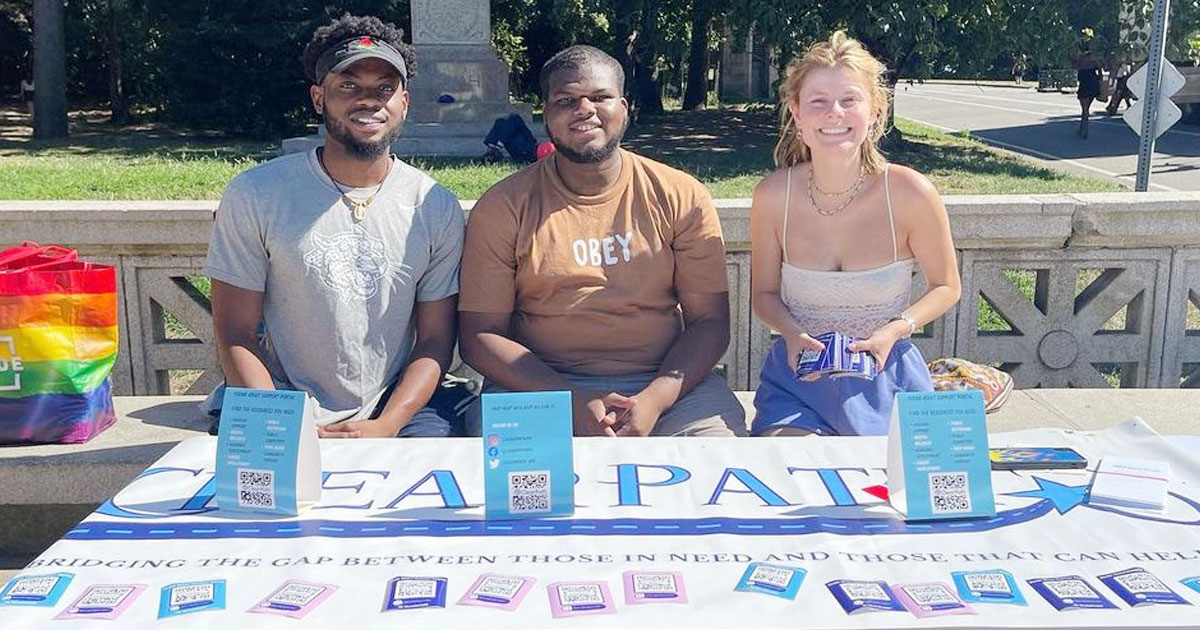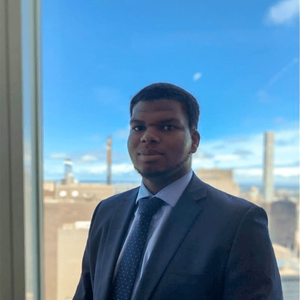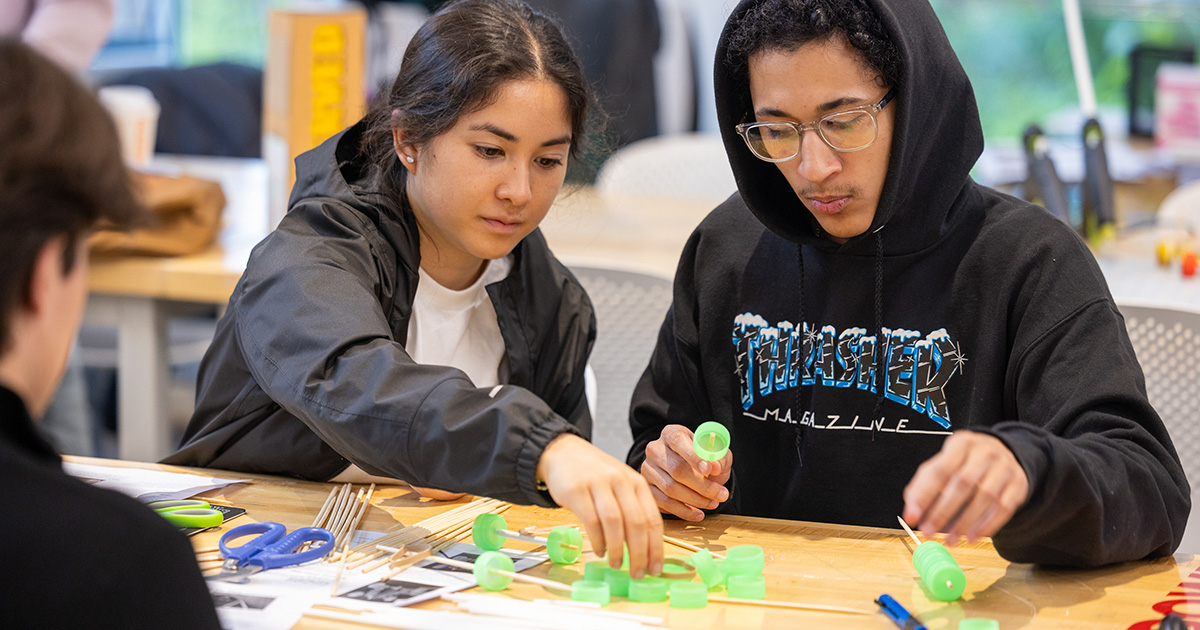Helping Those Without a Home

Sedonami Agosa ’20 has long been concerned about the homeless. Born and raised in New York City, he participated in drives for food, clothing, and books as a teenager, and he put together care packages for those without homes.
For Agosa, the issue of homelessness was a personal one. “I grew up in lower-income housing,” he says. “I’ve seen the effects of poverty in my own community.”
At Babson, Agosa didn’t forget about the homeless. He was a Posse Scholar, and he felt fortunate to be part of that scholarship program. He also felt a responsibility. “When I got to Babson, I wanted to take all the tools and opportunities that were given to me and bring it back to New York City, and bring it back in a way that I could have an immediate impact,” he says. “It was continually on my mind.”
Trying to figure out how he might make a difference, Agosa researched the issue of homelessness as a student. He discovered a startling fact: an average of one out of four foster children, once they age out of services, end up homeless at some point. “Once you strip away those resources, they often fall into homelessness. I found those numbers astonishing,” Agosa says. “I didn’t think it was fair that these individuals should go through that.”
His research led Agosa to start ClearPath. A portal for young adults aging out of foster care in New York City, as well as for other at-risk youth facing homelessness, it provides access to much needed resources, including housing, mental wellness, academic, and professional development services. Agosa began working on ClearPath as a Natalie Taylor Scholar, a Babson program in which students strive to make a positive social impact, and the nonprofit remains a focus of his life today, even though he has since graduated and begun a career in finance. ClearPath’s portal officially launched earlier this year.
“It is a passion project for me,” Agosa says. “It continues to drive me.”
An Urgent Need
Becoming the executive director of a nonprofit, though, wasn’t something he expected to happen so soon. Initially, Agosa didn’t plan to move forward with the idea of ClearPath until he left Babson and was more established in his career, but then came March 2020. Suddenly, the need for ClearPath felt more urgent.

In addition to his responsibilities at ClearPath, Sedonami Agosa ’20 works as a risk analysis specialist at Bank of America.
Soon after the pandemic forced massive shutdowns, Agosa enlisted 10 friends to help him finish ClearPath’s site. “Nonprofits were closing down. Shelters were closing down,” Agosa says. “COVID made it impossible for individuals to access care. This is a population that is already invisible.”
Typically across the country, children age out of the foster care system and lose access to governmental services at the age of 18. In some states, including New York where ClearPath is based, the age is set at 21. When they reach those ages, unless they are fortunate to have a support system of some kind, young adults in foster care are thrust alone into the hard reality of trying to make a life for themselves. “They are left to figure it out on their own,” Agosa says.
Agosa imagines how difficult that must be, especially if one doesn’t have a college degree or a network of supportive friends and family. He’s not sure if he could have managed that at such a young age. “I wouldn’t know what job to get. Without a college degree, I wouldn’t know how to support myself. I wouldn’t be able to pay rent,” he says. “At Babson, you learn that failure is an opportunity to grow. But, they don’t have the opportunity to fail at 18 and are forced to provide for themselves.”
Time Management
To help at-risk youth, the ClearPath portal is connected to roughly 150 programs. Visitors to the site can search through a wide variety of essential services. “It’s a one-stop portal,” Agosa says. To reach those in need, the site’s QR code is placed on benches and poles in places where homeless young adults may gather, such as parks and subway stations. ClearPath, which has a staff of 10, also reaches out to librarians and guidance counselors, encouraging them to promote the site.
“When I got to Babson, I wanted to take all the tools and opportunities that were given to me and bring it back to New York City, and bring it back in a way that I could have an immediate impact.”
Sedonami Agosa ’20, founder and executive director of ClearPath
All this takes work, and ClearPath is not Agosa’s sole responsibility. He also has a full-time job as a risk analysis specialist at Bank of America. “My full-time job gives me the opportunity and financial leverage to work on this in my free time,” Agosa says.
Still, having both a job and a nonprofit makes for busy days. He typically works on ClearPath on weekends and in the evenings. “There have been a lot of lessons in time management,” he says.
For Agosa, the commitment is worth it. “I want to make sure the product is beneficial to the homeless youth out there. That takes time,” he says. “I should put my time where my heart is.”




